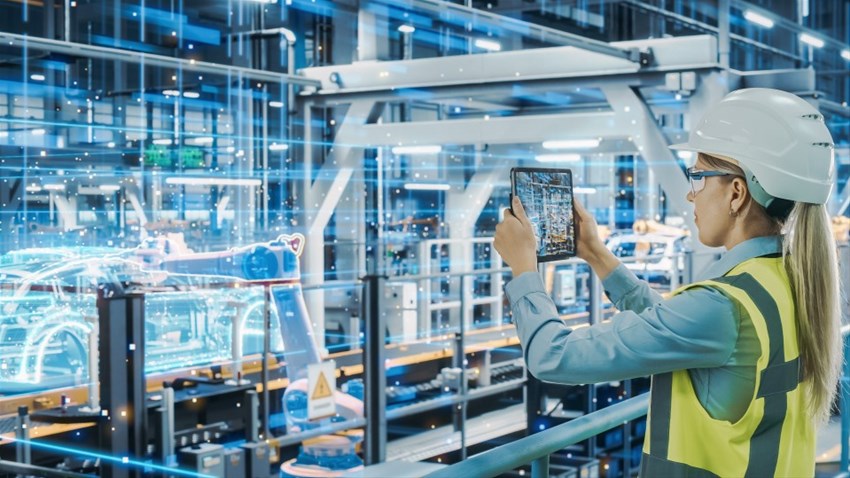“Don’t forget about people in the digital transformation!”
16 Oct 2023
More and more companies are investing in digital tools and systems, but they are not always prepared for the impact of the technology transition may have on employees, working methods and management. “Digitalisation requires new knowledge and new ways of managing and organising work,” say Anna Karin Olsson and Kristina Eriksson, researchers at University West. “To succeed, the employees’ perspectives need to be included from the outset.”

The technology transition is in full swing within the Swedish manufacturing industry. To improve efficiency and strengthen competitiveness, production and various support functions are increasingly being digitalised. Everyone who works within manufacturing faces changed roles and new ways of working. But how can digital transition be implemented in a sustainable manner? Is there a risk that employees’ knowledge and experience will be lost? How is the manufacturing industry addressing the demand for new and changing skills?
An interdisciplinary research team at University West has worked in close collaboration with Siemens Energy and GKN Aerospace to examine these issues in greater depth. The three-year research project Artificial and Human Intelligence through Learning (A-HIL) has provided valuable insights and knowledge that are now being shared within industry, the research community, and to students.
How can research help industry?
“One contemporary challenge for businesses is to balance the interaction between people and technology in an increasingly digitalised industry,” explain Anna Karin and Kristina. “These businesses tend to focus mainly on technological advances, and risk overlooking human-centric aspects.
“To ensure the success of the digital transition and to be able to build smarter factories, effective interaction between people and technology is needed. Employees’ knowledge and experience must be incorporated into the new digital tools. It is essential to understand just how complex introducing new technologies is.”
Which issues have you focused on?
“The overall aim of the project has been to understand how employees – everyone from operators, technicians and team leaders to the company’s management – can contribute their experiences and perspectives to the digitalisation process.
“These processes cut across the organisation and require taking a more team-based approach. This brings many challenges, which is why we have focused on discussing co-workership issues such as those linked to digitalisation, leadership, learning and innovation.
“The goal has been to create a deeper understanding of how industrial digitalisation can benefit from both human and artificial intelligence within the learning process, with a particular focus on machine learning, production flow simulations and interactive apps.”
How have you worked?
“Together with Siemens Energy and GKN Aerospace, we initially identified key issues by holding workshops. During the course of the project, we have collected and analysed various data such as production data, in-depth interviews and the results from focus groups with employees working in different professional roles. We then developed working models and identified critical factors for organising and learning.
“The project consisted of six work packages with different focuses. Researchers, a PhD student and students at bachelor and master levels have worked with the companies involved. A particular benefit of the project has been the interdisciplinary composition of the research team, which has enabled us to research industrial digitalisation from different perspectives.”
What is your most important advice for industrial companies in transition?
- Recognise that people need to be at the heart of the digital transition if it is to succeed. Make step-by-step changes rather than radical, threatening organisational changes. Make use of input in the form of common sense, critical thinking, tacit knowledge, experienced judgment, creativity, etc.
- Taking responsibility for industrial digitalisation is a challenge. In the transition from Industry 4.0 to Industry 5.0, it is essential to create an adaptive organisational culture with a focus on continuous learning and skills development.
- Create engagement and interaction with colleagues from all functions and levels early on – both experts and non-experts – to make it easier to build up organisational capabilities and to ensure trust in strategic processes for digitalisation.
Find out more about the results from the Artificial and Human Intelligence through Learning research project. The project has been conducted within the framework of University West’s interdisciplinary research area Industrial work-integrated learning. Research funder: The Swedish Knowledge Foundation.
Contact: Anna Karin Olsson, project manager for A-HIL, University West.


